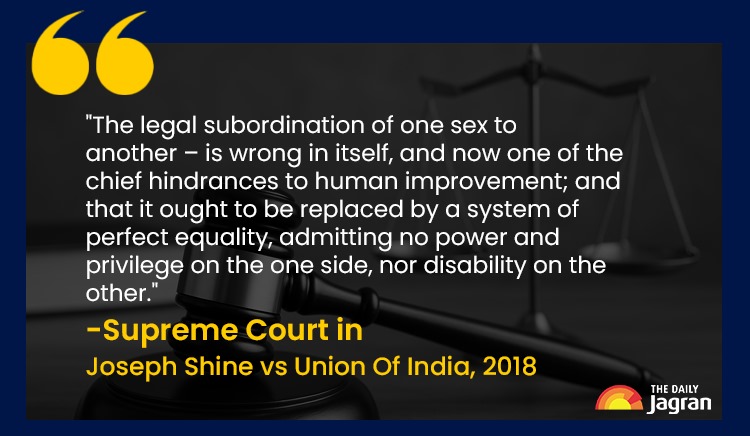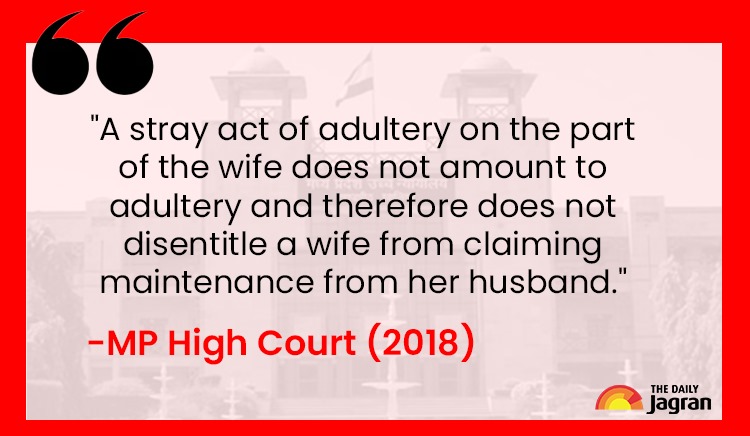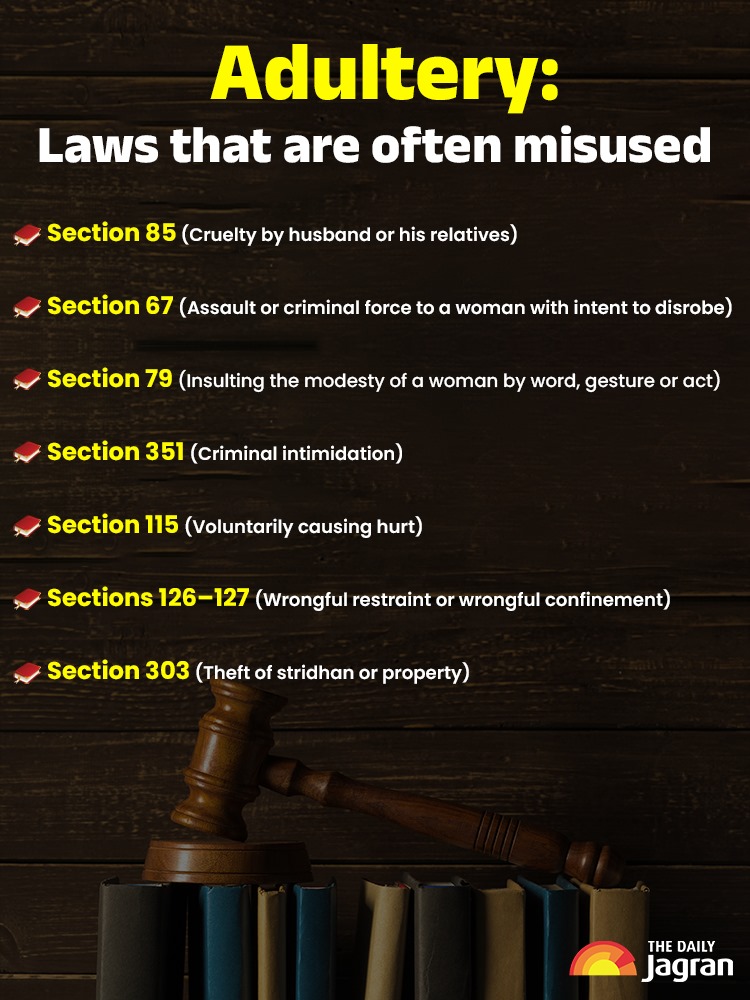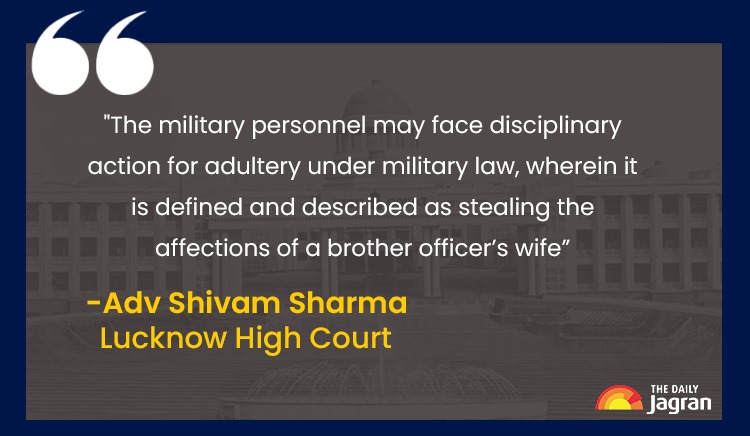- By Shubham Bajpai
- Wed, 12 Nov 2025 11:06 AM (IST)
- Source:JND
It's My Right: Once a criminal offence, adultery has been one of the most contentious issues in the lives of married couples and the legal landscape as a result. As no official complaint can be filed for adultery, a person facing this at the hands of their partner does have some legal options.
As cases of adultery have seen a rise, it is necessary to understand what rights a person has to deal with such behaviour from their partner.
What is adultery?
Adultery is sexual intercourse by a person outside their marriage, i.e., who is not their spouse. The act constitutes a breach of trust and commitment in a marriage and can have legal, social, and religious consequences.

Historically, it has been morally objectionable, which gave it a legal status as a criminal offence. But in 2018, the Supreme Court finally decriminalised it.
Decriminalisation of adultery
In 2018, the Supreme Court of India ruled that the Indian Penal Code's (IPC) Section 497 was unconstitutional as it allowed only men to be prosecuted for committing adultery.
The Daily Jagran reached out to Mr Shivam Sharma, Senior Advocate of the Lucknow High Court, who said that the top court decriminalized adultery, calling the now-quashed law discriminatory, paternalistic, and a violation of women's dignity and autonomy.
ALSO READ: It’s My Right: Facing Harassment During WFH? How POSH Act Protects Employees Beyond Office Walls
He said, "In India, adultery is no longer a criminal offence due to the Supreme Court's 2018 ruling in Joseph Shine v. Union of India, which struck down Section 497 of the IPC. The court deemed the law discriminatory, paternalistic, and a violation of women's dignity and autonomy."
Legal recourse in case of adultery
According to Advocate Sharma, adultery is not a crime but one of the reasons to seek divorce and subsequent claims like maintenance.
"Although adultery is not a crime, it can still be a valid reason for divorce," he said.
Advocate Sharma explained, "Divorce based on adultery is a legal right, but in such a case, the burden lies on the divorce applicant to present proof of the act of consensual extramarital sexual intercourse."
Adultery also has implications in maintenance cases, as under Section 125(4) of the Criminal Procedure Code (CrPC), a wife is not entitled to maintenance if she is living in adultery.
Earlier this year, the Madhya Pradesh High Court found that the quantum of maintenance awarded to a woman, divorced over adultery, was reasonable.
The court remarked, "To trigger CrPC Section 125(4), continuous and repeated acts of adultery are required." The judgment opened Section 125(4) for wide interpretation.

Laws that are often misused in cases of adultery
In the absence of any penalising action over adultery charges, certain sections are often seen being used by both the adulterer and the accuser to prove their case:
-Section 85 (Cruelty by husband or his relatives)
-Section 67 (Assault or criminal force to a woman with intent to disrobe)
-Section 79 (Insulting the modesty of a woman by word, gesture or act)
-Section 351 (Criminal intimidation)
-Section 115 (Voluntarily causing hurt)
-Sections 126–127 (Wrongful restraint or wrongful confinement)
-Section 303 (Theft of stridhan or property)

The Daily Jagran also talked to Jyoti Tiwari Pandey, founder of Shrut Shakha, who has dealt with such cases for over a decade.
ALSO READ: It's My Right: Digital Rights Every Netizen Should Know
Over the misuse of dowry and sexual harassment charges by women in case of being accused of adultery, she said, "Most men are accused of dowry or sexual harassment. First, it is important to understand the kind of circumstances or patterns in which such accusations arise. Second, it is necessary to have knowledge of the law so that the accusations can be properly responded to. If there is evidence, the situation becomes stronger. In my experience, if a person is not afraid, then much can be managed."
Recommended For You
Such allegations are basically a resort to prevent losing maintenance in divorce proceedings in the face of adultery accusations. Similarly, male adulterers, too, make fake counter-allegations to offset the allegations, as seen in many cases.
What can a person do?
In case a person finds their married partner involved in an extramarital relationship, the immediate step they could take is to gather evidence, as the responsibility to prove it lies with them.
If they fear fake counter-allegations or threats before starting the divorce proceedings, they can file an informatory petition under Section 33 of the BNSS.
Adultery decriminalised, but not for armed forces personnel
Advocate Sharma also explained the difference in the application of adultery in civil and military matters. For personnel of the armed forces, the act is recognised as 'stealing the affections of a brother officer’s wife'.

"Military personnel may face disciplinary action for adultery under military law, wherein it is defined and described as stealing the affections of a brother officer’s wife."
(Disclaimer: This article is part of the series 'It's My Right'. The views expressed in the article are for informational purposes only and do not constitute legal advice. To read more articles in the series, click here)
-1762924998307_v.webp)




